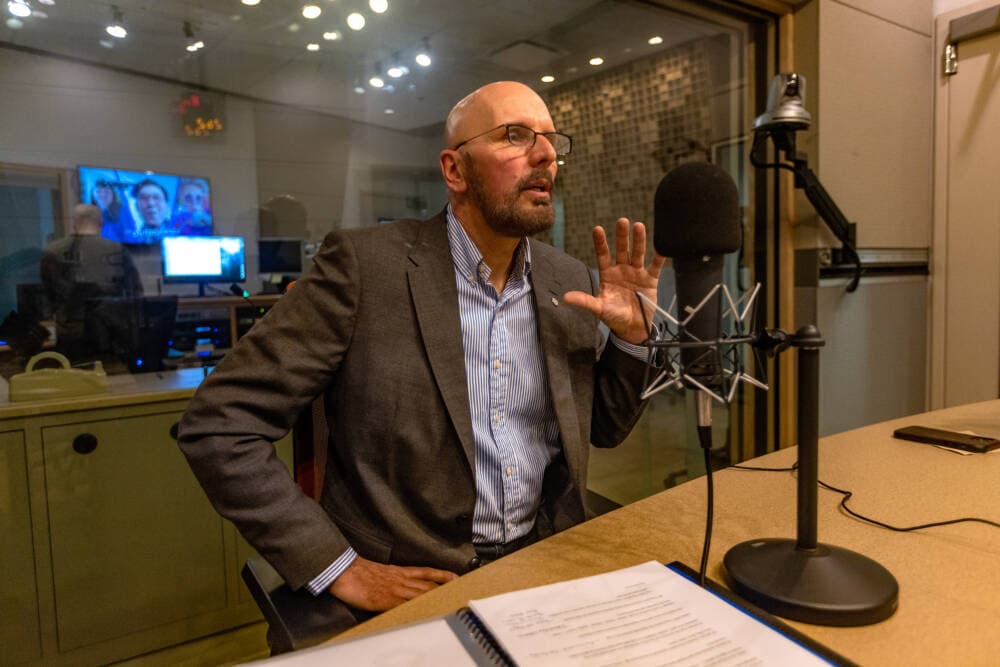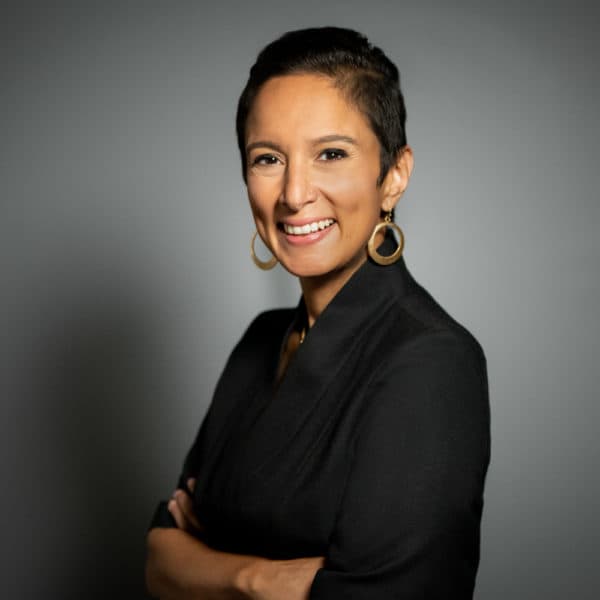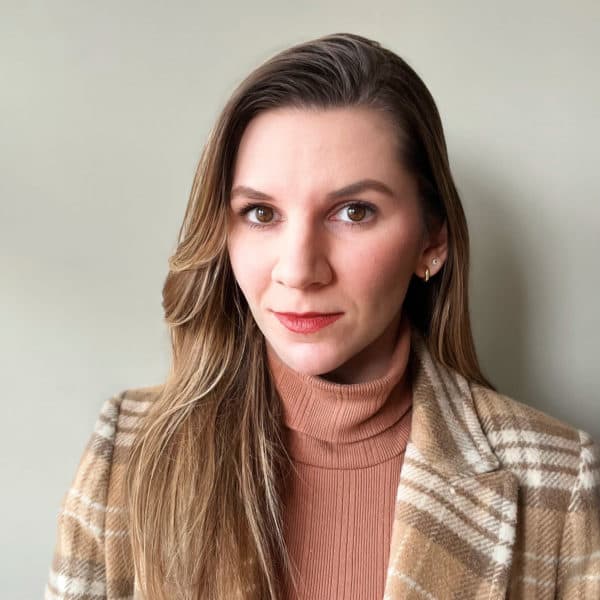Advertisement
Group of Boston Marathon bombings survivors help others reeling from tragedy

A group of Boston Marathon bombing survivors is channeling its experience with trauma to help other victims of terrorism and hate crimes. In 2016, they created the One World Strong Foundation, which has responded to tragedies, from the Pulse Nightclub shooting in Orlando, Florida, to the Manchester England Area bombing. It's now a growing network of survivors around the world.
Founder and president Dave Fortier spoke with WBUR's Morning Edition host Rupa Shenoy about the inspiration behind the foundation, and the support and mentorship they provide to survivors.
Below are highlights from their conversation, which have been lightly edited.
Interview Highlights:
On what led to the creation of the One World Strong Foundation:
"There's actually several moments that led to it, but I can really trace it back to the day everything happened. Seeing everybody rush in to help, that was really the beginning. It was in the hospitals and rehab centers that I would actually have a chance to meet veterans of the Iraq and Afghanistan war from Semper Fi and America's Fund that came to visit us. It was the first time that many of us knew we'd be okay. It's one thing for a doctor, a nurse, a family member, a therapist to say you're going to be okay. It's quite another with somebody with similar injuries that has been through something similar."
On the group's first informal response to tragedy:
"We started doing some things ad hoc after the marathon bombings. I was visiting Chicago when the mass shooting at the Pulse Nightclub in Orlando, Florida, happened in 2016. My phone lit up like a Christmas tree, and it was people in Boston messaging about what had happened there. Many people were killed, many people were injured, and folks in Boston wanted to go to Orlando — these are survivors from Boston that wanted to help others. And we found ways to do it.
"In the hospital rooms in Orlando we were able to make those connections. There were survivors of the event there that didn't even speak English, but you'd see that connection being made just by being in the room."
On how volunteers approach conversations with victims:
"It's a regular conversation and it's different everywhere we go. Not everybody heals the same way, and that's the most important thing to remember in all this. You know, they don't have to tell their whole story. They understand that you've been through something, and there's almost an instant bond. I've seen it in many places around the world now. It's as if you've known somebody your whole life. It's that quick of a connection."
On the ongoing relationship with fellow survivors:
"It's not just a one-time visit; you're there for life. That piece really came from the veterans that visited us from Semper Fi and America's Fund. They said, 'You may not need anything right now, but in 10 or 15 or 20 years, you might. And we're going to be here.' And we do the same thing."
On the mobile app One World Strong launched to reach more people:
"What we started to focus on was reaching people virtually, and that actually came from a visit to a refugee camp in the Middle East. One of the first things I noticed was a cell tower. The other thing I noticed were people looking down at their [phones]. And I realized we can connect with people there.
"It actually also led us down the road of prevention. Stories of survivors can make a difference not only for survivors, but people that might be thinking about doing something to harm others. I learned that from talking with former al Qaeda and former extremists on the left and on the right. They didn't really understand what they were doing. They may have understood the political aspect of what they were trying to do, but not what that physical piece would mean to people that they were hurting.
"Our goal has been to get those stories out there to help stop these things from happening. We'll never know if those stories will ultimately stop something from happened. But [if it does] that's one less community that we need to visit, wherever that might be."
This story originally aired on April 11, 2023.
This segment aired on April 11, 2023.

